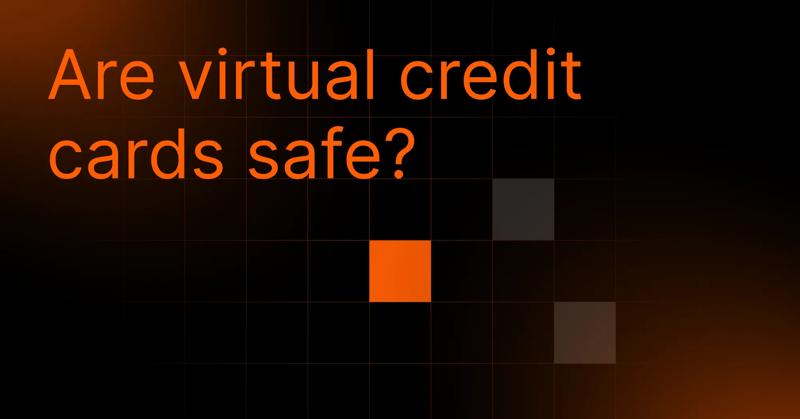Credit monitoring vs. identity theft protection: Understanding the key differences
Both credit monitoring and identity theft protection services help you safeguard your personal information, but they focus on different aspects of your financial security. Credit monitoring keeps an eye on your credit report and alerts you to potentially suspicious changes, while ID theft protection is a broader service that goes beyond credit monitoring — it scans the web for your leaked credentials and offers professional guidance and financial reimbursement if you suffer from identity theft or online fraud. Learn more about the benefits of each service so you know which one to choose.

What does credit monitoring do?
Credit monitoring helps you stay on top of your credit activity. By tracking your credit activity, you can catch potential issues early (such as identity theft or mistakes on your credit report) and take action to solve them.
You can monitor your credit on your own by regularly checking your credit reports from the three major credit bureaus — Equifax, Experian, and TransUnion. Each of these bureaus is required by law to provide you with a free credit report once a year. To request one, simply go to the website of the credit bureau, find the section for requesting a report, complete the identity authentication process to verify your identity, and view your report.
Another way to access your credit report for free is to request it through the official government site, AnnualCreditReport.com. There, you can check your credit report each week. However, you can’t request the same report repeatedly each week from the same bureau. Instead, you can check the reports across all three bureaus on a rotating basis.
When reviewing your credit report, look for any unexpected or unfamiliar accounts, hard inquiries, or changes in your credit score. If something looks off, investigate right away. For example, if you notice an account you didn’t open or a credit inquiry you didn’t authorize, this could indicate fraud. Contact the credit bureau and the financial institution in question to resolve the issue. You may also want to freeze your credit to prevent further harm.
If you don’t want to keep requesting the reports yourself, you can sign up for paid credit monitoring services. These services track your credit in real time and send you alerts whenever there’s a significant change that looks in any way suspicious. No need to wait a week to check your credit report — a lot can happen in that time, including credit fraud.
But keep in mind that many of these services require a fee. So let’s look into them in more detail.
Paid credit monitoring services
Instead of only checking your credit report occasionally, these services continuously track your credit activity. Plus, they also send you security alerts about potentially suspicious credit activity. These alerts can help you catch problems early, so you can address them before they affect your financial health.
Some paid credit monitoring services also offer additional features, such as dark web monitoring for your personal details and recovery services in case of identity theft or financial identity theft. For example, if someone took out a loan in your name, you would get an alert about it. Some services would even assign a professional to guide you through the process of resolving the issue and reimburse financial losses related to the fraud.
When choosing a paid credit monitoring service, you should consider several things:
- What’s included in the plan? Some services only monitor your credit, while others add credit score tracking and even identity theft protection and recovery. Know what features are most important to you.
- How much does it cost? Prices can vary. Make sure the service you choose offers enough value for what you’re paying. Some may offer a free trial or a 30-day money-back guarantee, so you can test it before committing.
- Does it offer customer support? Check whether the service offers good customer support, including user reviews. Look for a service with 24/7 support or accessible resources for fraud resolution.
Paid credit monitoring is a good choice if you want extra peace of mind and more hands-on protection. Just make sure to review what’s included and choose a service that fits your needs and budget.
To learn more, take a look at our guide on what credit monitoring is.
Pros and cons of using a credit monitoring service
If you’re still considering whether you should monitor your credit yourself or pay for a credit monitoring service, check out the summary of the pros and cons of both:
Monitoring credit yourself | Using a paid credit monitoring service | |
|---|---|---|
Pros | Free access to a credit report once a year from each credit bureau. Free access to a credit report from one of the bureaus each week through the AnnualCreditReport.com website. | Alerts you to changes in your credit report, which may help catch errors or fraud early. |
Gives you control over what you check. | Provides regular updates on your credit score. | |
Some providers offer additional features, such as identity theft protection services. | ||
Cons | Can be time-consuming to request and review reports. | You have to pay a monthly or yearly fee. |
What does identity theft protection do?
Identity theft protection goes beyond just monitoring your credit report — it includes a range of features to help detect and resolve identity theft issues. Using an identity theft protection service is like having a team of experts on standby who inform you of credential leaks and suspicious credit activity and guide you if you suffer ID theft or credit fraud.
The key features of a reliable identity theft protection service include:
- Security alerts. Identity theft protection services notify you as soon as they detect any potentially suspicious activity in your credit report. For example, if a new user is added to your credit card account, you’ll get an alert.
- Dark web monitoring. These services scan the internet, including the dark web, for your personal and financial information, such as your name, email address, and social security number. It’s a useful feature because criminals often sell stolen personal information on the dark web. Being alerted gives you a chance to act as soon as possible — potentially before the criminals get a chance to use this information maliciously.
- Assistance with recovering your identity. Some identity theft protection services help their eligible customers restore their identity if it’s stolen. For instance, if your identity is used to open fraudulent accounts, the service can guide you through resolving the issue, which may include reporting the theft to relevant institutions, freezing your credit, and disputing the errors with the credit bureaus to have them removed. Some services also provide identity theft recovery — reimbursement of various expenses for qualified users.
- Online fraud coverage. Identity theft protection services may also offer coverage if you get scammed online, like purchasing from a fraudulent site.
ID theft protection advantages and limitations
Identity theft protection is worth investing in if you want to protect your identity and have a piece of mind. But as with any service, it has its limitations.
Advantages
- Scans the dark web for your credentials.
- Includes identity recovery assistance.
- Offers reimbursement of expenses.
- Offers online fraud coverage.
Limitations
- Does not prevent identity theft before it happens.
- Some services charge monthly or annual fees.
- Does not guarantee full financial recovery.
- May only cover certain types of online fraud.
Keep in mind that each provider offers different features and services, so it's important to review what it includes before signing up. Check its website to see exactly what’s covered in the subscription.
Key differences between credit monitoring and identity theft protection
Credit monitoring is a good starting point for tracking your credit activity, while identity theft protection offers a broader, more proactive approach to protecting your credit and personal information. Even though both services are designed to safeguard your financial well-being, they focus on different aspects of protection.
Scope of monitoring
Credit monitoring services focus primarily on your credit activity. Identity theft protection, on the other hand, goes beyond just monitoring your credit. It includes tools like dark web scanning, where your personal and financial information is checked against data sold by criminals online, and identity recovery assistance, which may include financial reimbursement. This wider scope means it can catch issues that credit monitoring alone might miss.
Level of protection and prevention
With credit monitoring, the main focus is on identifying changes to your credit report. It’s a great first line of defense because it helps you spot errors or potential fraud early.
Identity theft protection offers a higher level of prevention by combining credit monitoring with credential leak monitoring. This may include credential leak alerts, credit freezes, or immediate access to a team of experts who help you resolve issues if your identity is stolen.
Cost and value
Credit monitoring is often available for free, especially if you’re using the government’s annual free credit report service. Some paid versions offer added features, like more frequent updates or coverage across multiple credit bureaus. Either way, it’s typically a more affordable option compared to full identity theft protection.
Identity theft protection, on the other hand, generally comes with a monthly or annual fee. The cost can vary based on the level of coverage and the features offered. While it’s typically more expensive than credit monitoring, it provides better security. If you’re concerned about potential identity theft or think you may need extra help recovering your identity if it gets stolen, an identity theft protection service can be worth the investment.
Here’s a concise comparison of credit monitoring vs. identity theft protection:
Credit monitoring | Identity theft protection | |
|---|---|---|
Focus | Monitoring and alerting for changes in your credit report or score. | Monitoring and alerting for changes in your credit report or score, plus, identity theft protection and recovery. |
Key features | Regular credit report updates, credit score tracking, and alerts for suspicious activity. May monitor the web for leaked credentials. | Regular credit report updates, credit score tracking, alerts for suspicious activity, dark web monitoring for leaked credentials, security alerts, online fraud coverage, identity theft recovery, and additional cybersecurity tools (e.g., a VPN). |
Scope | Monitors credit-related activities and reports. May monitor the web for leaked credentials. | Monitors credit-related activity and personal information across multiple areas (credit reports, credit accounts, the web). |
Benefits | Early detection of credit fraud or unauthorized changes to your credit and alerts. May include some identity theft protection features. | Early detection of credit fraud or unauthorized changes to your credit and alerts. Also, detects, alerts, and helps to resolve identity theft incidents, and offers reimbursement. |
Cost | Varies based on provider and scope. | Varies based on provider and scope. |
Best if | You’re mainly concerned with monitoring and managing your credit activity. | You need broad protection from credit fraud, identity theft, and online fraud. |
Additional considerations | Focused specifically on credit activity monitoring. May or may not include some of the identity theft protection features. | Includes credit monitoring, identity theft protection and recovery, and online fraud recovery. |
Keep in mind that the specific package of tools and services may vary by provider.
Do you need credit monitoring or identity theft protection?
When choosing between credit monitoring and identity theft protection, it’s worth checking related statistics so that you’re basing your decision on more than just assumptions or general advice.
In 2023, approximately 1,036,961 cases of identity theft were reported in the US. Of these, around 416,582 cases, or about 40%, were related to credit card fraud.
The Federal Trade Commission reports a staggering financial impact of the crimes in 2023, with consumers losing over $10 billion, a 14% increase from the previous year. Investment scams, in particular, led to the highest reported losses, totaling more than $4.6 billion.
So which protection service should you choose? Credit monitoring alerts you to changes in your credit report, but it only covers credit activity. In contrast, identity theft protection offers broader coverage. Since identity theft can go beyond credit fraud, a full protection service is more effective in safeguarding you.
When should you choose credit monitoring?
Choose credit monitoring if you’re mainly concerned about unauthorized credit activity and want to receive alerts about any changes to your credit report. It’s a good option if you want to stay on top of potential credit card fraud without paying for broader identity theft protection, especially if you’re ready to regularly monitor your credit activity yourself.
When should you choose identity theft protection?
You should start subscribing to an identity theft protection service if:
- You consider yourself to be at high risk of identity theft.
- You’re unwilling to freeze your credit reports.
- You know that you won’t go through the effort of actively monitoring your own credit.
If any of these apply to you, sign up for identity theft protection. It will give you peace of mind and help you catch identity theft or credit fraud early, so you can take action as soon as possible.
How to choose the right identity theft protection service for you
Choosing the right identity theft protection service means matching features to your specific needs and budget. First, decide if you need basic dark web and credit monitoring or comprehensive protection with family coverage and cybersecurity tools. Compare pricing across tiers and focus on services that offer the monitoring scope you actually need.
When evaluating NordProtect or Identity Guard alternatives, prioritize insurance coverage amounts, customer support quality, and recovery assistance quality. Check what’s included in each plan tier and use money-back guarantees to test services before making a long-term commitment.
Scams are in the air!
Save 71% on identity theft protection with fraud insurance
30-day money-back guarantee
View promotion details.
Focusing on identity theft prevention, Irma breaks down the latest online threats and how to stay ahead of them. She wants to help readers stay informed and shares practical solutions to protect themselves.



